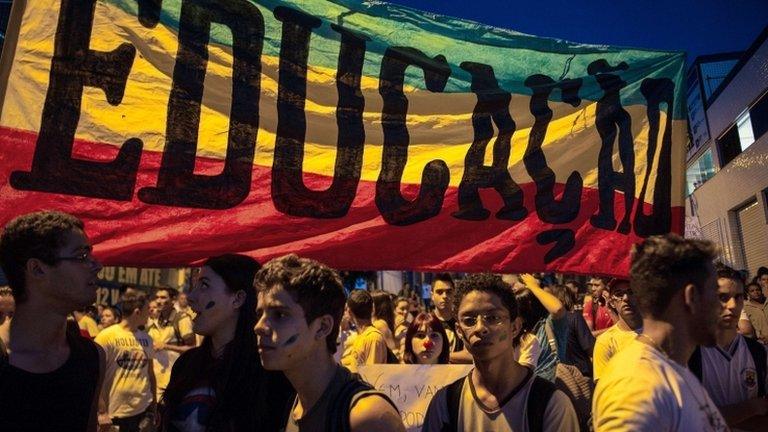World Cup 2014: Brazil need to lift trophy to erase their 1950 pain
- Published
- comments
Great World Cup moments: 'The Maracana Blow'
Mario Zagallo may have won four World Cups but it is a single defeat by Uruguay 63 years ago, a day that all of Brazil would rather forget, that has stayed with him.
The 81-year-old's face lights up as he recalls memories of his playing days and of managing Pele, Carlos Alberto et al to the 1970 World Cup with arguably the greatest side of them all. There is passion too in his voice when the conversation turns to 1994 and the day Brazil finally won it again.
He is even frank and open about Ronaldo's infamous fit before the 1998 final against France in Paris.
But none of those images of glory, none of that drama can erase the 2-1 defeat against Uruguay at the Maracana in the final game of the 1950 World Cup, the last major tournament to be held in Brazil.
More than 60 years on and Brazil are preparing to meet their great rivals on home soil once more, this time in the last four of the Confederations Cup in Belo Horizonte.
"That day has never left my mind," he tells BBC Sport.
"I was there, wearing my military uniform because I was on national service. Everyone at the Maracana was waving a white hankie in support for Brazil."
Zagallo was still a teenager, one of a record 205,000 Brazilians who watched from the steep concrete steps of Rio's famous footballing arena as the dream of a first World Cup victory slipped away. Brazil scored first. Uruguay equalised. But then with 11 minutes remaining, Alcides Ghiggia wrong-footed Brazilian goalkeeper Moacir Barbosa and Uruguay scored again.
Nelson Rodrigues, a prominent Brazilian playwright, even went as far as to describe the defeat as "our Hiroshima".
Barbosa, the Brazilian goalkeeper that day, became a scapegoat and a pariah. He died penniless in 2000. Before his passing, he told friends that the saddest moment of his life had come when he overhead a woman who had seen him a shop, say, "he is the man that made all of Brazil cry".
"The country was in mourning," Zagallo adds. "Everyone was crying at the stadium. This is why in 2014 Brazil cannot lose.
"I want to see Brazil play football, win over the crowd and win this sixth title. Because all the major football countries that have hosted the World Cup have won it at home - England, Germany, Italy, Uruguay, Argentina. Brazil is the only one not to have done it.
"I will not stand for Brazil losing at home a second time. We have won five times away, the yellow jersey needs to rise again here in our own country."
Zagallo is a legendary figure in these parts, having won more World Cups than Pele. They call him El Lobo, the wolf, after he became the first man to win football's biggest prize as a player and then a manager, lifting the trophy as a winger in 1958 and 1962, as manager in 1970 and as Carlos Alberto Parreira's assistant in 1994.
He might have won at least one more, having led Brazil to the final as manager in 1998, but the Selecao were brushed aside 2-0 by France in an emotional final that would later became infamous for the mystery surrounding Ronaldo in the hours before kick-off.
"I thought we were going to win on that day," Zagallo says. "But Ronaldo had a fit, a seizure at lunch on the day of the final and that affected the team."
Zagallo goes on to describe the scene as the team travelled to the Stade de France, knowing their talismanic striker would not take part.
"Normally when Brazil leaves the hotel for the match it's all music, but on that day, this didn't happen, there was no music on the team bus," he says.
"All the players were asking about him on the bus. But then Ronaldo got to the stadium maybe five minutes before the start and came to me.
"He said 'Zagallo, don't keep me out of this match. This is important for me, I feel OK now. I had a problem six hours ago, I went to a top clinic, they ran all sorts of tests and gave me a clean bill of health.'
"I was waiting for the team doctor, Lidio Toledo, to make a decision but he didn't say anything. No-one said anything. I took my role as leader and said, 'are you ok?' and he said, 'I'm not a kid.' So it was not his fault, but the shock affected everyone."
Zagallo had been asked to return as manager for a second World Cup, having made his name as the manager of the great side of 1970. A side that many saw as the greatest of all-time, until the arrival of the modern-day dominance of Spain, the World and two-time European champions.
"In 1970, we played in the same way Spain plays today, but not at the same speed. However, our team was very good on the ball and kept ball possession, like the Spanish, which is a team that has been playing like this for a long time," Zagallo said.
"They're not in a hurry when they're on the ball, as they keep ball possession and wait for an opportunity to pounce. In 1970, we didn't mark by pressure, we waited in the midfield, because the players I fielded couldn't mark by pressure. Therefore, we waited for the opponent at the midfield and would attack when on the ball. I changed the way the team played from when it was managed by Joao Saldanha.
"I basically fielded five number 10s, Rivelino, Jairzinho, Tostao, Pele and Jerson - plus Clodoalvod and Carlos Alberto Torres on the flanks - as it's played today. We surprised the world and we won the World Cup after playing the best match I've ever watched - against England - when we won 1-0 but could have lost 1-0.", external
Zagallo's authority has grown over more than 60 years in the game. Few are better placed to offer an opinion on whether Brazil has the talent and the tenacity to do it once again. "Brazil is Brazil. It may turn into a great team overnight," he says.
"The team is growing. I was lucky enough to make changes and find my team in two months, and everything worked out. Let's see what happens, the sooner Felipao [coach Luiz Felipe Scolari] finds the team, the better for Brazil."
- Published14 June 2013
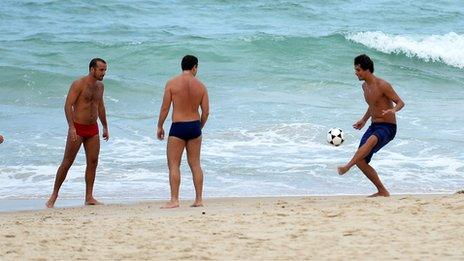
- Published22 June 2013
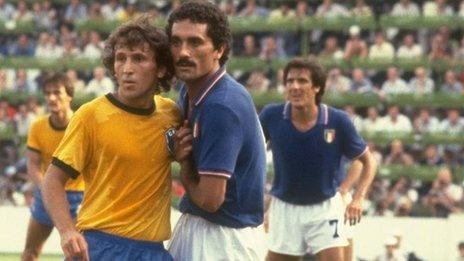
- Published24 June 2013
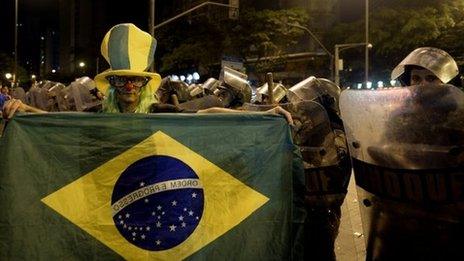
- Published21 June 2013
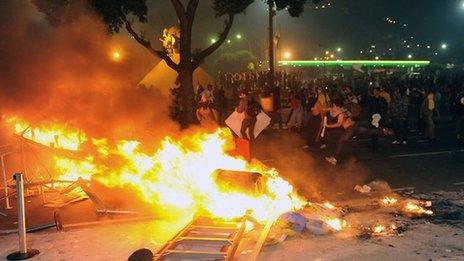
- Attribution
- Published24 June 2013
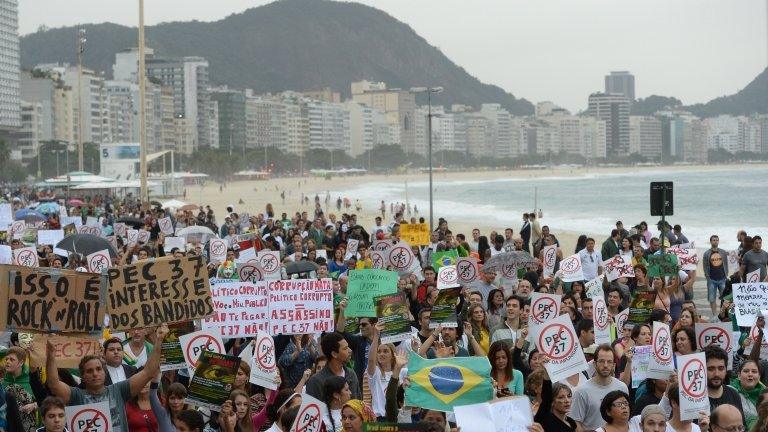
- Attribution
- Published22 June 2013
